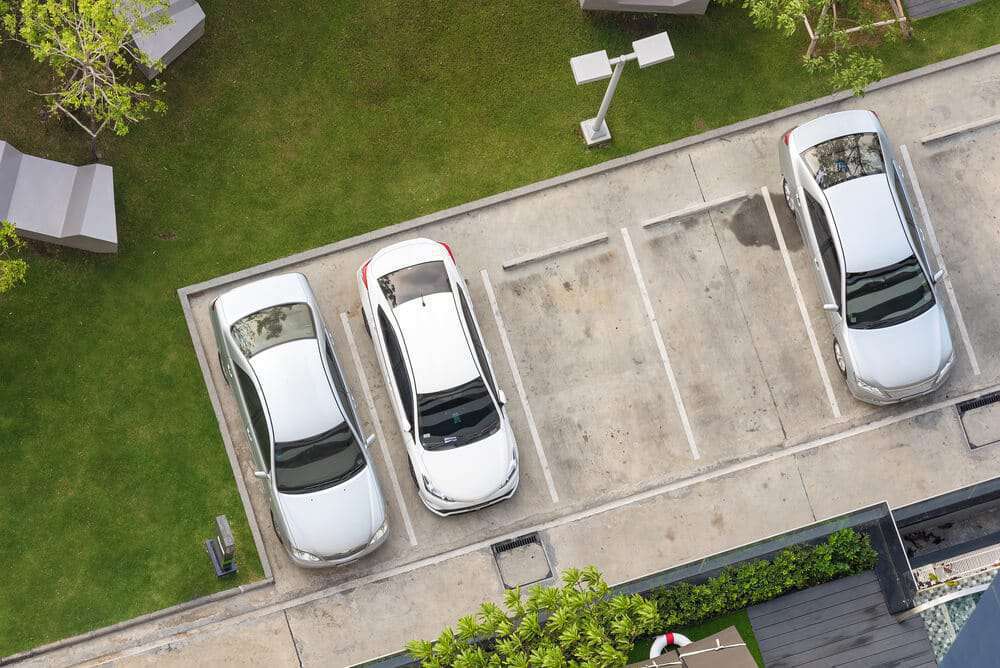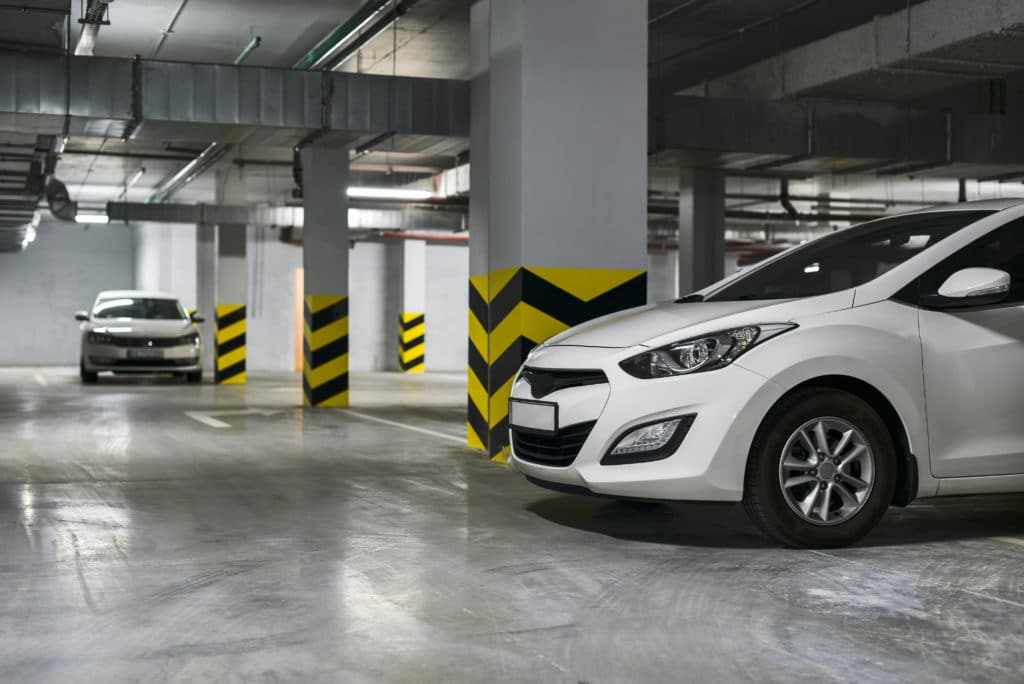Many renters consider ‘parking’ in their apartment search, but few consider parking ratios and the amount of parking that is available. So just how much parking is enough at an apartment building?
Every apartment complex is different based on size, location, and amenities so it’s always best to check before you sign a lease. Let’s look at some general rules of thumb for the amount of parking.
Apartment Parking Amounts
IN THE SUBURBS

In the suburbs, most communities find that the optimum parking ratio is between 1.25:1 and 1.5:1. A ratio of 1.25:1 essentially means that for every apartment, there are about 1.25 parking spots. It’s not that there are actually .25 parking spots ‘floating around’ somewhere. This is just the average. For example, a parking ratio of 1.25:1, would mean that a 100-unit apartment building would have 125 parking spots. Some residents may have one car, some two cars and some won’t have any cars.
These higher parking ratios are needed as most suburban individuals and families commute longer distances, and thus they depend on their automobiles to travel to entertainment, school, and children’s after-school activities far more than urban families.
IN THE CITY/DENSE URBAN MARKET

Most urban apartment communities are likely to have parking ratios of far less than 1:1 closer to center city, and parking ratios of 1:1 in locations within the city but outside of the downtown business district. A few select communities will have ratios greater than 1:1 approaching 1.25:1 outside of the center city business district.
On the other hand, if you are looking for apartment parking downtown in a city such as Philadelphia, then a good parking ratio is likely to be .5. This means there will be about half a spot per apartment. In other words, a 100-unit building would have 50 parking spots. This can be tricky if you have your own car, but it is likely that many downtown residents also rely on public transport and/or don’t want to pay the hefty fees associated with parking downtown.
Take Into Consideration
It’s also worth mentioning that parking ratios vary dramatically by city. For example, a good parking ratio in New York City is going to be very different than a good parking ratio in Detroit, Michigan.
Nearly all communities have rules regarding parking, and certainly parking for a second car. As you approach center city, the cost of parking one car becomes expensive, and the cost of parking two cars per family is often so costly that it becomes cost-prohibitive. Demographics and location are the two parameters that most often determine if an apartment communities parking ratio is sufficient.
How to Check for Parking
Before you sign the lease on an apartment, be sure to ask a few questions about parking so you don’t end up scrambling around looking for a place to park your car after you’ve moved in. Some questions to ask include:
- What is the overall parking ratio for the complex?
- Is there a dedicated parking spot?
- Is there a cost for parking? How much is it?
- Are there parking spots available within the complex or is there off-street parking on a first-come-first-serve basis only?
- What percentage of residents use the parking facilities?
- How far is the parking from the building?
- Do you have to pay extra to secure a closer parking spot?
- Does it have enough lighting during the night?
- Are the parking spots surface or garage covered?
Parking can be a bit of a hassle depending on the location you choose so make sure you check this ahead of time to avoid disappointment later.





